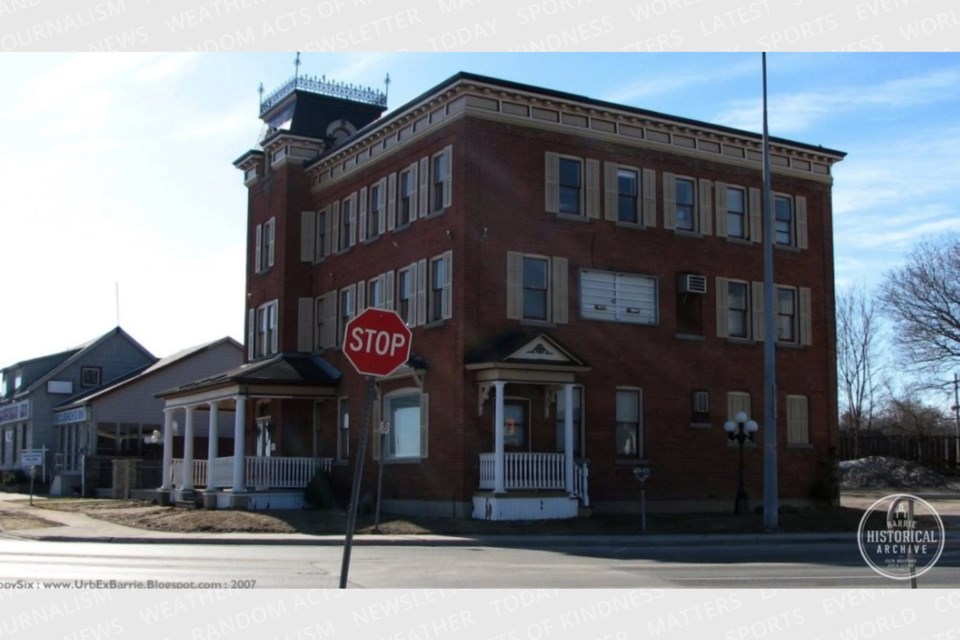Let’s hear them! Bring out your stories of Halloween pranks from days gone by. We all know you have some good ones to tell.
Storyteller beware though. Unlike what you see on reruns of Law & Order, Canada has no statute of limitations on historic crimes. If your pranks involved nothing more than TP and a dozen eggs, you’re likely fairly safe.
What was behind all of these acts of mischief anyway? Likely, nobody remembers. They were too wrapped up in the fun to wonder why being extra naughty on Oct. 31 of each year was more or less accepted.
Blame it on our Scots and Irish ancestors. They believed that the veil between this world and the spirit realm was particularly thin on the night before All Saints Day, Nov. 1. Modern day costumes, tricking and treating are a mix of the fear, honouring and appeasement that once took place.
Favourite pranks in days gone by included pushing down fences, removing gardens gates and leaving them somewhere down the street, placing livestock on top of farm buildings and tipping outhouses.
These bothersome tricks were largely tolerated by the community. After all, the victims of this tomfoolery had likely done the same thing in their own youth.
Fortunately for us, Halloween night has evolved to include more treating and less tricking. For a time, the youthful Halloween hijinks had become increasingly violent and the vandalism more destructive. It was events like the one which occurred on Oct. 31, 1926 that led to a tamer and more sugar-filled All Hallows Eve.
James Booth, a farmer on the 11th Concession of Innisfil, was fed up. For the entire fifteen years of his residence there, local boys created mayhem on his land each year. This year, Booth was ready, having just purchased a brand-new rifle that day.
Sure enough, Mrs. Booth woke her husband from his sleep somewhere about midnight and informed him that someone was in the barnyard. Mr. Booth roused his son and they grabbed the new rifle and an old shotgun.
Outside, they found that a wagon had been pulled out of a barn and that cattle feed had been scattered on the ground. A large group of teen boys were retreating across a field and all the while laughing and taunting Mr. Booth.
What happened next was debated in a Barrie courtroom the following spring. The escapade ended with seventeen-year-old William Albert Woods being carried home by companions. He suffered a collapsed lung and spent six months in Royal Victoria Hospital.
James Booth was charged with wounding and doing grievous bodily harm. The farmer contended that he barely knew how to operate the new firearm and had to have his son load the gun for him. He testified that he was tired of the yearly pranks and had fired into the dark night sky simply to frighten the gang.
William Woods had a gunshot wound to his back and the injury was directly linked to the actions of James Booth. Nevertheless, the defense argued that there was no intent to injure anyone and the rural jurymen agreed. Perhaps they were sick and tired of Halloween disturbances as well. Not guilty.
Another potentially deadly prank was the stealing of road signs. Barrie’s traffic manager stated that he could live with the removal of most ordinary signs but the not with the theft of stop signs. A car accident due to a missing stop sign could lead to “a charge of murder” he pointed out.
The mid twentieth century saw an organized effort to steer young people away from causing mayhem. Halloween parties, costume parades and the practice of shelling out became much loved traditions.
Each week, the Barrie Historical Archive provides BarrieToday readers with a glimpse of the city’s past. This unique column features photos and stories from years gone by and is sure to appeal to the historian in each of us



